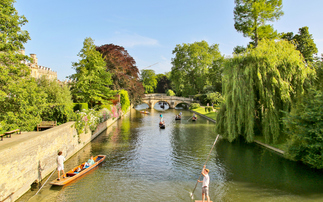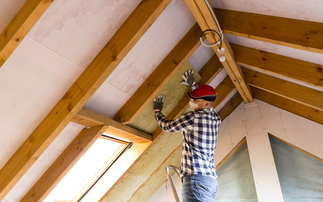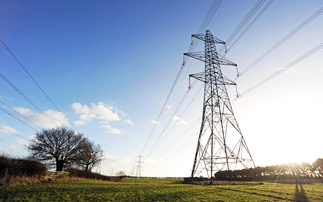In the first part of our series on Global Action Plan's energy management best practices, we reveal how a Westminster hotel is engaging employees with its wide-ranging energy saving programme
Outside the staff canteen at the Park Plaza Westminster Bridge there is a tree - or rather, a painting of a tree. The tree started off with bare branches, but for each green initiative the hotel undertakes a new leaf with details of the latest improvements will be added. The goal, beyond ending up with a tree in full bloom, is to ensure that the hundreds of employees at the 1,000 room hotel are constantly reminded of the steps that are being taken to reduce the building's environmental footprint - steps that have gone into overdrive since the tree was unveiled.
Employee engagement is critical to the success of many of the hotel's environmental initiatives, according to Dave Bell, chief engineer at the Park Plaza, who reveals the tree is supported by a new campaign dubbed Save Energy and Switch Off Now, or Season. Under the new programme, each team in the hotel has an environmental champion who is tasked with encouraging recycling and making sure lights, computers and other technologies are turned off when they are not in use.
The campaign is also supported by a dedicated slot for green issues at the company's monthly staff meetings.
"We've always had monthly employee communication meetings, but now there is part of those meetings that is specifically for updating people on green progress," reveals Bell, adding that with the hotel using large numbers of agency staff it has also introduced targeted training to ensure the agencies the company works with are aware of its environmental policies.
Meanwhile, a suggestion box beside the tree invites employees to put forward their own proposals for green improvements, with the promise of Love to Shop vouchers for ideas that the hotel acts on. Bell reveals a number of vouchers have already been handed out, after staff suggested the hotel switches to recycled pens, finds a use for old cooking oil, and plants a herb garden on the roof - proposals which will now either be investigated or enacted.
Various initiatives have also been introduced to help raise employee awareness of the hotel's environmental impacts. Bell explains that as a precursor to a trial on paperless meetings, staff were invited to enter a competition asking them to guess how tall a tower the company could create by stacking up the paper the hotel uses each year.
"The answer was 604m, and the Shard is only 303m," reveals Bell. "It was a really good way of highlighting how much paper we use and it also highlights to the powers that be that there is a significant cost attached to that level of paper use."
Another handy trick that is already working is the simple addition of an image of a pair of eyes to the posters in the recycling area in the staff canteen - a psychological ploy that has been shown to encourage people to behave honestly because they subconsciously think they are being watched. Official figures on recycling levels following the addition of the eyes are yet to come through, but Bell is adamant that the early indications show recycling rates have increased.
These employee engagement efforts are designed to complement a wider push by Bell and his colleagues to reduce the hotel's environmental impact and running costs through a series of technology improvements. Since the turn of the year, the hotel has installed 1,500 ultra-efficient LED bulbs in rooms and corridors, deployed 1,200 eco-shower heads, and introduced aerated taps that curb water use. The net results are energy bill savings from the LED deployment totalling about £100,000 a year and a reduction in water and heating bills of about £107,000 as a result of the changes to taps and showers. Meanwhile, the hotel has also installed a waste food digestor that converts about three tonnes a month of food waste into waste water, and Bell reveals plans are in place to install a second digestor in the coming months and then potentially convert them to generate energy in the future.
Bell explains how he was able to build a compelling business case for the upgrades by focusing on the payback periods they offer.
"The payback period is key," he admits. "Anything that has a payback period of more than 18 months is going to be hard to push through and would need a very good business case. But the showerheads deliver payback in just three months, the LEDs pay for themselves in a year, and waste digestors pay back in about seven to eight months. For me, the environmental benefits are the big thing, but for the business you have to pitch the projects by looking at the financial perspective as well."
Using this focus on payback periods, a number of other projects are now in the pipeline, including the plans to generate energy from food waste, and ambitious proposals to recycle some of the water from the hotel's laundry.
"We obviously have a sizeable laundry operation, so the next thing we are doing is looking at harvesting the water to reuse it to flush the staff toilets - that could save 35 million litres of water a year."
At this rate, it looks as if the Park Plaza's tree could be in full bloom in next to no time.
This sponsored content was developed in partnership with Global Action Plan









